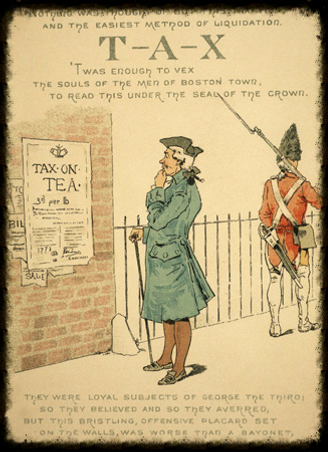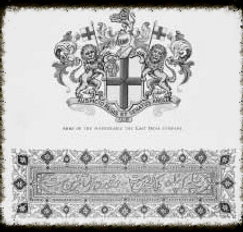top of page
United States History
By: Elena Cantwell
The Tea Act
Dates of Enactment and Repealment
Passed on May 10 of 1773, the British government hoped that this taxation on tea would help a Britiansh-run tea supplier, the East India Company, out of debt. Because the Tea act led directly to the American revolution, there was no specific date when the British government repealed the act ("Tea Act").
Purpose and Provisions of the Policy
The purpose of the Tea Act was to help the East India Tea Company out of bankruptcy ("Tea Act"). The act allowed the company to export merchandise directly to the colonies wothout paying the taxes that were imposed on merchants, thus creating a monopoly of the tea trade. Because the colonists were held to the taxes imposed by the Townshend Acts and the East India Company was not, tea was then boycotted by colonists (Brinkley, 108). The government believed that the colonists would be thrilled about the lower prices of tea, however the unconstitutional taxation was more important to the Americans (108).

"A Boston colonist reads a British royal proclamation about a tax on tea in the colonies as a British..."Gale Encyclopedia of U.S. History: Government and Politics. Vol. 1. Detroit: Gale, 2008. U.S. History in Context. Web. 18 Oct. 2015.
Merchants
The merchants were the group most affected by the Tea Act because they were unfairly taxed (McDonough). The merchants were still being held to a tax that was not applied to the East India Company, therefore, the company was able to sell the tea at lower prices and still turn a profit and the buisness was taken away from the merchants (Selesky). Even though this act did not create a new tax, the colonists viewed the new law as unconstitutional because of the fact that the British-run companies were no longer held to the same standards and taxes (Brinkley, 108).

"A coat of arms for the British East India Company. The company was chartered by Queen Elizabeth I in..." History of World Trade Since 1450. Ed. John J. McCusker. Vol. 1. Detroit: Macmillan Reference USA, 2006. U.S. History in Context. Web. 19 Oct. 2015.

This nineteenth-century engraving depicts the December 1773 Boston Tea Party, in which the Sons of..." Gale Encyclopedia of U.S. History: War. Vol. 1. Detroit: Gale, 2008. U.S. History in Context. Web. 19 Oct. 2015.
The Response of the Colonists
The first response of the Colonists was to boycott all tea. Many people were angered by the unfair taxation, therefore the groups who protested were much larger than ever before. Many protest groups were formed, such as the Sons and the Daughters of Liberty. The Daughters of Liberty claimed that they would "rather than freedom, depart with our tea", showing how important freedom was to the colonists (Brinkley, 108). The Sons of Liberty, disguised as Tomahawk Indians, organized the Boston Tea Party, the event in which 342 crates of tea into the Boston Harbour on December 16, 1773. The Tea Party led directly to the American Revolution ("Boston Tea Party (1773).").
bottom of page